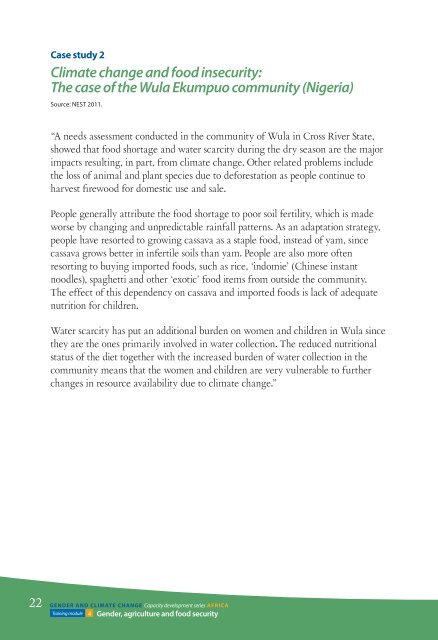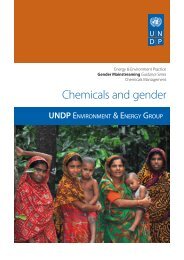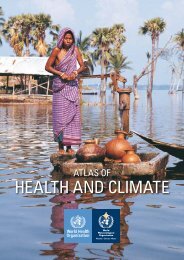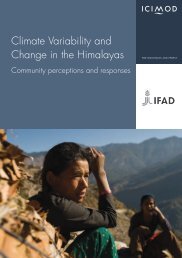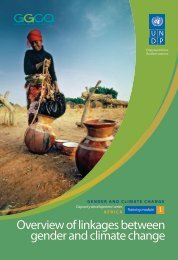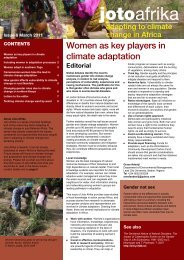Module 4: Gender, Agriculture and Food Security - Gender Climate
Module 4: Gender, Agriculture and Food Security - Gender Climate
Module 4: Gender, Agriculture and Food Security - Gender Climate
- No tags were found...
You also want an ePaper? Increase the reach of your titles
YUMPU automatically turns print PDFs into web optimized ePapers that Google loves.
Case study 2<br />
<strong>Climate</strong> change <strong>and</strong> food insecurity:<br />
The case of the Wula Ekumpuo community (Nigeria)<br />
Source: NEST 2011.<br />
“A needs assessment conducted in the community of Wula in Cross River State,<br />
showed that food shortage <strong>and</strong> water scarcity during the dry season are the major<br />
impacts resulting, in part, from climate change. Other related problems include<br />
the loss of animal <strong>and</strong> plant species due to deforestation as people continue to<br />
harvest firewood for domestic use <strong>and</strong> sale.<br />
People generally attribute the food shortage to poor soil fertility, which is made<br />
worse by changing <strong>and</strong> unpredictable rainfall patterns. As an adaptation strategy,<br />
people have resorted to growing cassava as a staple food, instead of yam, since<br />
cassava grows better in infertile soils than yam. People are also more often<br />
resorting to buying imported foods, such as rice, ‘indomie’ (Chinese instant<br />
noodles), spaghetti <strong>and</strong> other ‘exotic’ food items from outside the community.<br />
The effect of this dependency on cassava <strong>and</strong> imported foods is lack of adequate<br />
nutrition for children.<br />
Water scarcity has put an additional burden on women <strong>and</strong> children in Wula since<br />
they are the ones primarily involved in water collection. The reduced nutritional<br />
status of the diet together with the increased burden of water collection in the<br />
community means that the women <strong>and</strong> children are very vulnerable to further<br />
changes in resource availability due to climate change.”<br />
22<br />
<strong>Gender</strong> <strong>and</strong> <strong>Climate</strong> Change Capacity development series Afric a<br />
Training module 4 <strong>Gender</strong>, agriculture <strong>and</strong> food security


